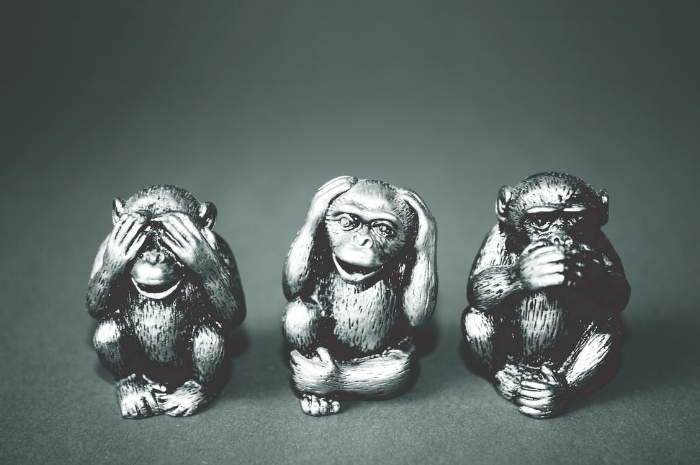“Don’t Tell Me, I Don’t Want to Know”: How Information Avoidance Can Keep Us Insulated From Important Social Problems
By Alex Garinther
There are more displaced persons today than ever before. Instability in Yemen, Syria, and South Sudan has forced millions to flee their homes and seek refuge around the globe. As the demand for open doors has increased, so too has the ability of individuals who are unaffected by these problems to control their media and tune-out this mass suffering, should they choose to.
To make progress on important social issues like the global refugee crisis, we first must be willing to engage with relevant information about the problem. Unfortunately, what a growing body of research suggests is just how hard it is for many of us to do just that—to open ourselves up to the harsh realities of the world. In a sea of news headlines with countless options to choose from, readers may be more inclined to click past an article about Yemeni plight this December and head their cursor toward a feel-good holiday story instead.
This isn’t exactly surprising; there are a myriad of forces working against us in this effort, and many of them are well-known. Busyness from our own lives, endless distractions, the need to deal with our own happiness, and motivational forces far and wide, both conscious and nonconscious, can get in the way of our ability to engage with unsavory news. Research psychologist Kate Sweeny and her colleagues were some of the first to outline a comprehensive list of various forms of “information avoidance” and theorize on what might drive this particular human tendency. We can all relate to the familiar feeling, I am sure, that comes with taking on keen awareness of a new (and seemingly unsolvable) social problem; this can be disheartening, unpleasant, and frustrating.
Other reasons for avoiding information exist, too; they extend beyond the realm of emotional protection and can at times take on a more strategic form. Think of the old schoolyard saying: “You can’t be blamed for what you don’t know.” This age-old excuse conveniently allows us eschew liability when we really could be helping. Researchers in Germany, Ralph Hertwig and Christoph Engel, put forward these ideas under the heading of “deliberate ignorance”—choosing not to know. Together with a chorus of other researchers, the social science community has come forth with an understanding that says the information we put in front of us is not a matter of mere happenstance—nor is it always a matter of our moral, conscious reasoning—it may have much to do with subconscious, unthinking, or potentially self-serving motives (even when we don’t sense it).
What We Found. To demonstrate this point, consider one new study from the Decision Research team, who took aim at the issue of “information spotlighting” in the face of human displacement and resettlement. We began by asking a panel of Americans to consider whether or not they would like to help refugees in the Middle East by allowing them to relocate to communities across the U.S. While considering this relocation proposal, the American participants were provided with a menu of information items to consider (short, one-line descriptions similar to news headlines or press briefings). We presented 15 of these information items and allowed participants to choose which ones they would like to incorporate into their thinking about the issue. We said they could select only the most important ones. What we found was that participants who came into the study with attitudes that were already less-than-positive toward refugees were much more likely to hone in on information that might highlight the downsides of refugee settlement (an analysis of potential risks, crime statistics from other nations who’ve accepted migrants), and much less likely to pay attention to information about who these refugees were as people, what they could contribute, or where they would turn if denied refuge. On the contrary, participants who entered the study with positive-or-neutral views of refugees tended to select relatively equal amounts of security and humanitarian-related information. One thing this work tells us is that given the same menu of items, people seem to be consuming very different information diets. It also tells us that some percentage of Americans are simply turning a blind eye to those in need.
In a democratic society, it is implied that the attention of the public can (and should) direct the attention of leaders and their actions in government. But if the current American public is as disinterested as the sample of Americans in our study, what kind of pressure are we putting on our leaders in Washington? How much are we pressing them for humanitarian action? Findings like these remind us that it really is up to every one of us to stay informed, to keep our eyes open to the problems of the world, and to challenge our neighbors to do the same. Because if we don’t take this on ourselves, who will?

